Bartenders Are Explaining The Very “American” Thing We Do Wrong When Drinking Before Dinner
“Most Americans misunderstand the concept of it."

If you’re chugging down your Aperol spritz alongside forks full of spaghetti at dinner, you’re doing it wrong.
Living la dolce vita, as Italians refer to “the sweet life,” always sounds like an inspired idea, but many of us are moving so fast that we fall short of the Italian ideal. That’s especially true during cocktail hour. In Italy, it’s an accepted part of everyday life to carve out a little bit of time before dinner for slowing down and enjoying a few sips of something wonderful.
This honored Italian tradition is explained by Annette Joseph, author of “Cocktail Italiano”: “During the 18th century, the ritual of enjoying cocktails before dinner became popular throughout Europe. In Italy, it caught on very quickly and remains a daily treat, especially in summer.”
The term aperitivo refers to something that’s drunk before dinner to stimulate the appetite. It comes from the Italian word aprire, which means “to open,” so it’s a beverage intended to “open the palate” before a meal. Most commonly, aperitivi are alcoholic drinks that include classic bitter Italian aperitifs as mixers. Often they’re served with light snacks like nuts, meats, cheeses and potato chips.
The minute the weather turns warm, the allure of the aperitivo expands. Stevan Miller, beverage director of Chicago’s Michelin-starred restaurant Esmé, said, “As the harbinger of spring and celebration, the bright and floral aperitivo has anchored itself in the lexicon of drinks.”
It should be a functional and emotional experience.
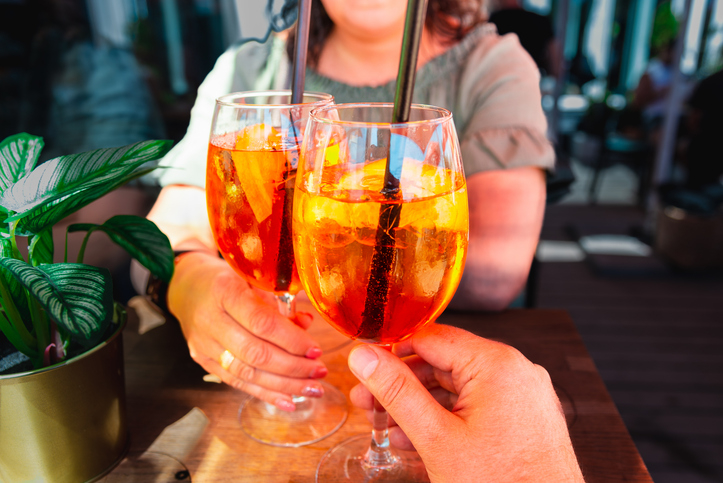
Bar consultant Carlos Ruiz observed, “It’s a cultural ritual to open up your stomach before dinner, and it’s is a great way to converse and have some small bites with friends and family.” Mixologist James Califano describes the aperitivo vibe as being in “the golden hour” before the sun sets and dinner begins. “It’s a time to soak up the golden light, clink glasses with friends and enjoy the gentle buzz,” Califano said.
Giuseppe Gallo, founder of beverage brands Italicus Rosolio di Bergamotto and Savoia Americano, said an aperitivo serves more than one purpose. “The first is functionality. It’s designed to awaken the palate and stimulate digestion before a meal, thanks to the bitter components derived from botanicals that engage with the circumvallate papillae, which is where taste buds are. The second purpose is emotional, because this is a ritual about conviviality and socializing,” Gallo said.
“It’s primarily a moment for social interaction,” said Marisa Huff, author of “Aperitivo: The Cocktail Culture of Italy.” “People gather together in cafes, wine bars or cocktail bars for a drink before dinner. The drink is usually accompanied by a bite of something to eat, which can be as simple as a couple of olives and a bowl of potato chips or a series of crostini or other finger foods. The goal here is to relax, catch up with friends or chat with locals about soccer scores.”
You’re getting it wrong by slurping it up.
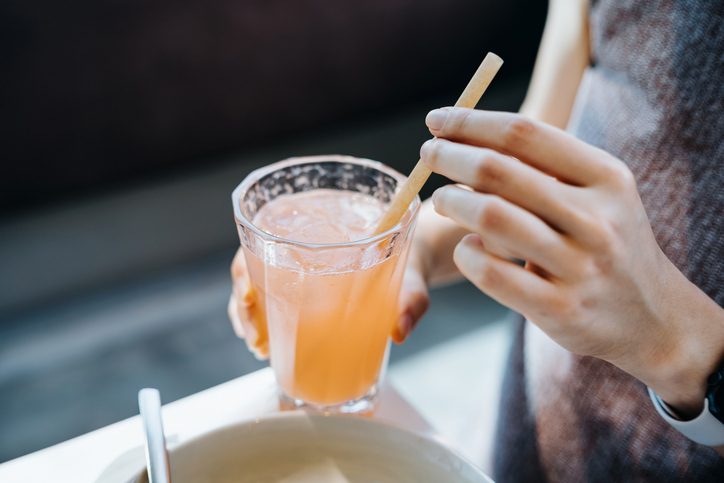
The relaxation and ease accompanying the aperitivo is a cultural hurdle to climb for our rush-rush society, but experts say it helps to remember why you’re sitting down and drinking in the first place.
“Most Americans misunderstand the concept of aperitivo by treating it solely as an opportunity to get drunk,” cocktail creator Keyatta Mincey Parker observed. “This goes against the tradition of light, refreshing drinks and small, quality bites that characterize aperitivo.”
Joseph agreed with her. “When Italians make a drink date with friends for after 5, they will most likely only order one drink,” Joseph said. “The idea of getting hammered is something Italians don’t equate with aperitivo.” Califano noted other missteps, which include drinks that are cloyingly sweet instead of “embracing the bittersweet balance of classic recipes.”
Enjoying just enough, and not too much, makes for a better evening, said Colin Hofer, general manager at Chicago’s Adorn Bar & Restaurant. “For example, drinking Negronis all night long will only result in a bright red mouth that can’t taste anything, because the bitter profile of the drink tends to dampen your palate’s sensitivity.”
Huff sums it up this way: “The goal isn’t to get sloshed at a discount, but to really savor the moment.”
Here’s how to set up your home aperitivo bar.
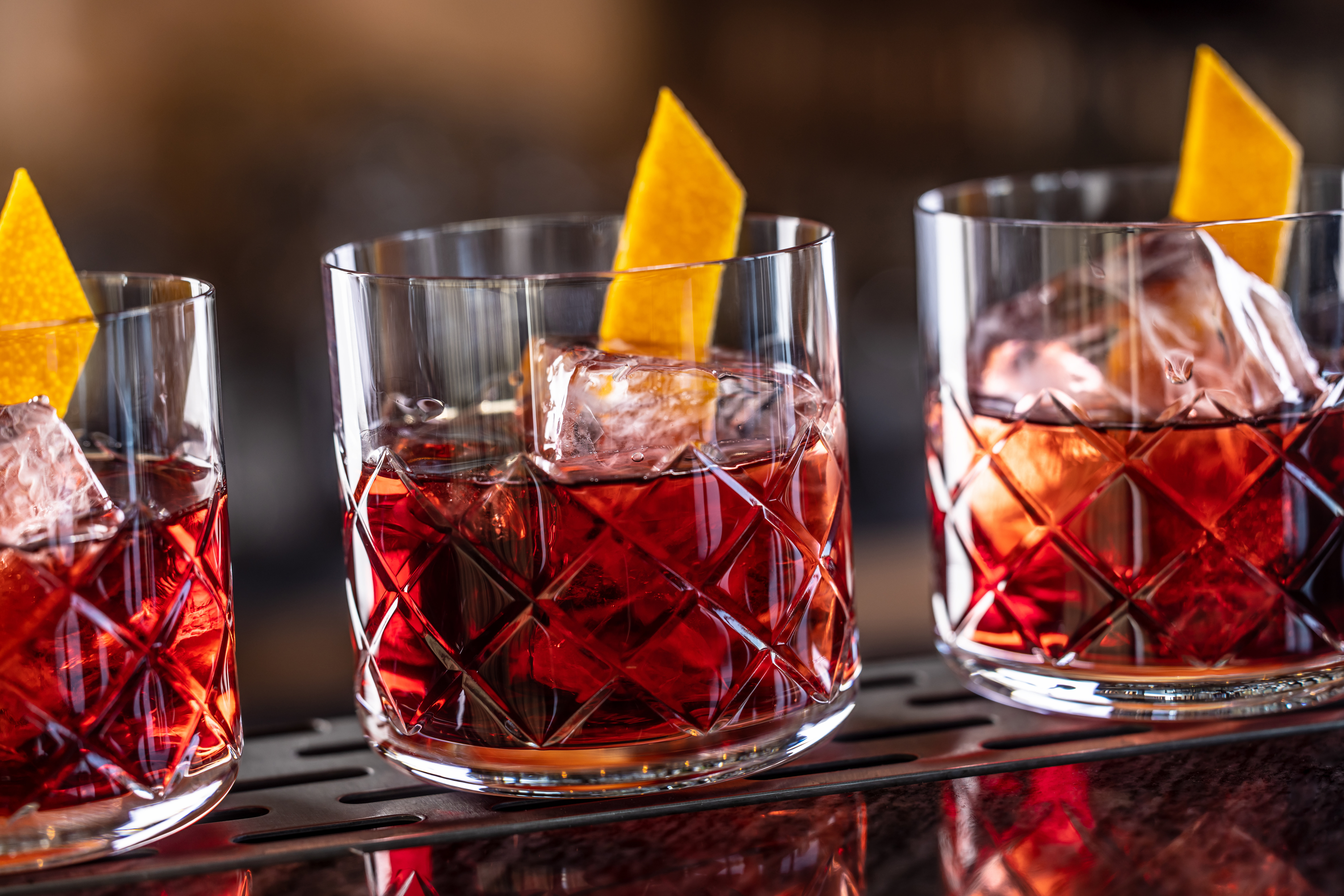
It’s easy to set up an aperitivo station at home. “You don’t need anything fancy, but use great ingredients and try to hit these three notes — light bitterness, carbonation and low alcohol (ABV).” Ruiz said. Hofer added: “The beauty is in the simplicity of ingredients, and it’s not meant to be too complicated.”
Califano said to start by laying in a supply of gin, Aperol, Select and Campari. He also suggested a high-quality dry vermouth “for that perfect bittersweet touch.” You’ll want freshly squeezed orange, lemon or grapefruit “to add a burst of brightness,” he suggested. And stock up on simple garnishes, too: “Olives, orange peels and herbs elevate the experience without overpowering.”
Gallo suggested sparkling elements like tonic, soda, prosecco or Champagne. And be sure to keep things chilly. “For a true aperitivo experience, use plenty of ice, as these are typically long drinks,” he said.
No shaker is necessary, said Lily Crabtree, beverage manager of Bazaar Meat and Bar Mar by Jose Andres in Chicago. “These drinks are pretty delicate, so shaking the spirits in a cocktail isn’t the best idea. Integrating ingredients by simply stirring should be sufficient.”
Whatever you mix up, Huff has advice on how to enjoy your beverage: “Italians say ‘cin cin’ instead of saying ‘cheers.’ And they never cross arms when saying it, because it’s believed to bring bad luck.”
What should you order when you’re out?
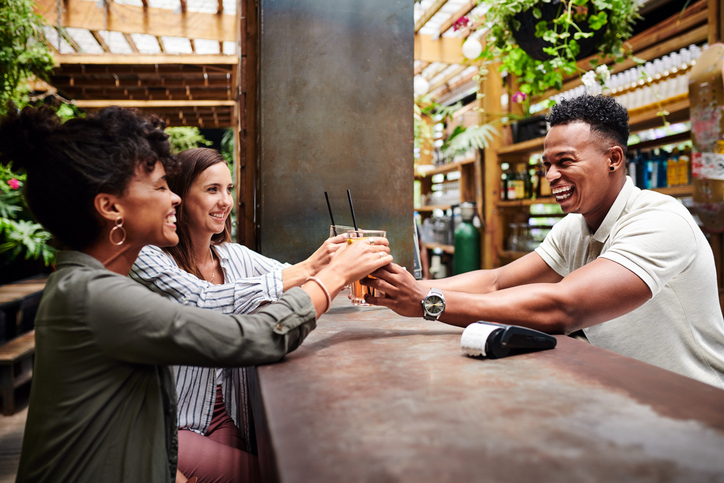
If you’re at a bar and wondering what to order, Joseph has suggestions. “The most popular cocktail of late is the Aperol spritz, made with Aperol, prosecco and a splash of soda,” she said. Another popular choice for her is The Hugo. “It has lovely elderflower notes, and it’s garnished with lime and mint.”
Hofer said, “The Negroni and the Aperol Spritz dominate the aperitivo landscape, but there are so many more cocktails and amazing products. Currently, I’m enjoying Marseille amaro from Brooklyn distiller Forthave Spirits.” Huff mentioned options including Campari soda, Milano Torino (Mi-To) and Garibaldi. And don’t forget the favorite drink of actress Emma D’Arcy, who gained TikTok fame over her love of the Negroni sbagliato.
Mike di Tota, corporate bar manager at The Smith Restaurant, said his personal favorite aperitivo is an Americano, made with equal parts Campari or other aperitivo, vermouth and soda water. “It’s the perfect balance of bitter, semi-sweet and refreshing.”
It’s about reconnecting to a lost art.
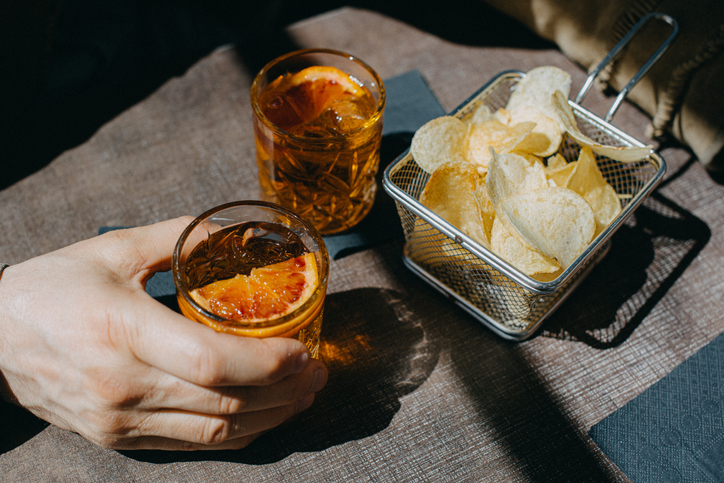
“I believe the ‘drink at the bar’ before dinner is a lost art,” said Rosebud Restaurants’ beverage manager Vince Vecchio. “It’s great to get to the restaurant early to sit at the bar, decompress from a hectic day, meet your company and get ready for a relaxing dining experience. Sometimes, it’s the best part of the evening.”
Many experts are hopeful that there’s room in our frantic lives for a slow-paced cocktail hour. “We’re currently witnessing the dawn of the aperitivo trend in the United States, reminiscent of the rise in coffee culture approximately 15 years ago,” Gallo said. “I believe that aperitivo is poised to enjoy a similar trajectory. Expect to see more specialized aperitivo bars and brands emerging across the country, because when Americans embrace something, they do so enthusiastically and without compromise.”
This article originally appeared on HuffPost.
